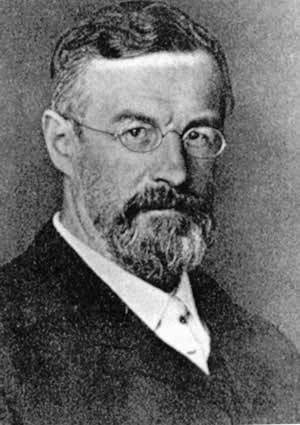Related Research Articles

Freiburg im Breisgau is the fourth-largest city of the German state of Baden-Württemberg after Stuttgart, Mannheim and Karlsruhe. Its built-up area has a population of about 355,000 (2021), while the greater Freiburg metropolitan area ("Einzugsgebiet") has about 660,000 (2018).

The University of Freiburg, officially the Albert Ludwig University of Freiburg, is a public research university located in Freiburg im Breisgau, Baden-Württemberg, Germany. The university was founded in 1457 by the Habsburg dynasty as the second university in Austrian-Habsburg territory after the University of Vienna. Today, Freiburg is the fifth-oldest university in Germany, with a long tradition of teaching the humanities, social sciences and natural sciences and technology and enjoys a high academic reputation both nationally and internationally. The university is made up of 11 faculties and attracts students from across Germany as well as from over 120 other countries. Foreign students constitute about 18.2% of total student numbers.

The Gottfried Wilhelm Leibniz Prize, or Leibniz Prize, is awarded by the German Research Foundation to "exceptional scientists and academics for their outstanding achievements in the field of research". Since 1986, up to ten prizes have been awarded annually to individuals or research groups working at a research institution in Germany or at a German research institution abroad. It is considered the most important research award in Germany.
Freiburg can refer to:

The University of Freiburg Faculty of Medicine is the medical school and dental school of the University of Freiburg and forms university's biomedical research unit together the University Medical Center Freiburg. The faculty was founded in 1457 as one of Germany's oldest and is regarded among its most distinguished. Institutes and buildings are located at the Medical Center campus in Freiburg's Stühlinger district and in the Institute Quarter in the Neuburg district. The Faculty of Medicine consistently ranks very highly in a variety of national and international rankings, such as those published by the German periodicals Der Spiegel and Focus. The University of Freiburg is ranked 4th in Germany in funding for life sciences research by the German Research Foundation overall and ranked 2nd in funding per professor.

Freiburg Botanical Garden is a botanical garden in the Herdern district at Schänzlestraße 1, Freiburg im Breisgau, Baden-Württemberg, Germany and is associated with the University of Freiburg as the "Forschungs- und Lehrgarten der Universität Freiburg" of the Faculty of Biology. The current director of the garden is Professor Dr. Thomas Speck.

Paul Theodor Uhlenhuth was a German bacteriologist and immunologist, and Professor at the University of Strasbourg (1911–1918), at the University of Marburg (1918–1923) and at the University of Freiburg (1923–1936). He was a rector of the University of Freiburg from 1928–1929. After his retirement in 1936, he led his own research institute in Freiburg, known as the State Research Laboratory, until his death in 1957.
The Paul Ehrlich and Ludwig Darmstaedter Prize is an annual award bestowed by the Paul Ehrlich Foundation since 1952 for investigations in medicine. It carries a prize money of 120,000 Euro. The prize awarding ceremony is traditionally held on 14 March, the birthday of Nobel laureate Paul Ehrlich, in the St. Paul's Church, Frankfurt am Main.

Ernst Christian Andreas Martin Fabricius was a German historian, archaeologist and classical scholar. Between 1882 and 1888 he participated in excavations in Greece and Asia Minor and also pioneered German research on the Roman Empire border defenses known as the Limes Germanicus.
Gertrude Lübbe-Wolff is a German academic and senior judge. She served as a justice of the second senate of the Bundesverfassungsgericht from 2002 to 2014, having succeeded Jutta Limbach in this position.

The Faculty of Biology is one of the eleven faculties of the University of Freiburg in Freiburg im Breisgau, Baden-Württemberg, Germany. It is part of a strong life sciences network including institutions such as the Max Planck Institute of Immunobiology and Epigenetics, the Bernstein Center Freiburg (BCF), the Center for Applied Biosciences and the Center for Biological Systems Analysis, which started operations in 2008 as offspring of the Freiburg Initiative for Systems Biology (FRISYS), funded by the Federal Ministry of Education and Research (BMBF).
Hermann Dold was a German physician and bacteriologist.
Adolph Emmerling was a German chemist, known for his research in the field of agricultural chemistry.

The Catholic University of Applied Sciences Freiburg was founded in 1971 through combining several predecessor institutions. It is one of the five Universities of Freiburg and one of the seven Catholic Universities of Applied Sciences in Germany.

Messe Freiburg is an event area and exhibition grounds in Freiburg im Breisgau.

The Platz der Alten Synagoge is a square in Freiburg, Germany. With a size of 130 by 130 metres, it is the second largest square in the city after Minster Square. The square is named after the old synagogue, which was destroyed during the Kristallnacht in 1938. The synagogue had been built in 1869/1870 to the southwest of today's location of the square.

The Uniseum is the university museum of the Albert-Ludwigs-Universität in Freiburg im Breisgau, Germany. The name is a portmanteau of Universität and Museum. As a neologism, it is trademarked.

Sucharit Bhakdi is a retired Thai-German microbiologist. In 2020 and 2021 Bhakdi became a prominent source of misinformation about the COVID-19 pandemic, claiming that the pandemic was "fake" and that COVID-19 vaccines were going to decimate the world's population.
Matthias Untermann is a German art historian and medieval archaeologist.
Albert Gollhofer is a German sport scientist and academic scholar.
References
- ↑ Personen- und Vorlesungsverzeichnis : Albert-Ludwigs-Universität Freiburg im Breisgau, 1956
- ↑ Eduard Seidler, Die Medizinische Fakultät der Albert-Ludwigs-Universität Freiburg im Breisgau: Grundlagen und Entwicklungen, Springer-Verlag, 2013, p. 268
